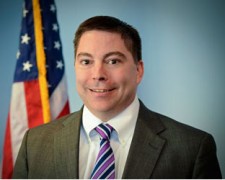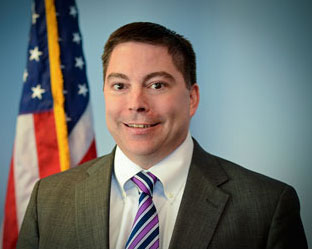 Michael P. O’Reilly came to the FCC in November 2013, taking the place of the retired Robert McDowell. Now he has President Obama’s nod to spend some more time working out of the FCC’s 8th Floor.
Michael P. O’Reilly came to the FCC in November 2013, taking the place of the retired Robert McDowell. Now he has President Obama’s nod to spend some more time working out of the FCC’s 8th Floor.
O’Rielly stated, “I am extremely humbled and appreciative of the action by President Obama to consider and approve my nomination to a new term as a Commissioner at the Federal Communications Commission. In my tenure at the Commission, I have appreciated the opportunity to work with my colleagues and the great people at this institution on the dynamic communications policy issues before us. The announcement by the President is an important step in the process, and I respect and honor the role that the U.S. Senate will undertake to consider my nomination as it determines appropriate.”
Also weighing in:
Tom Wheeler: “Mike O’Rielly and I were confirmed together for his first short term and I look forward to continuing to work with him in his new longer term. Commissioner O’Rielly is deeply committed to the goal of improving the lives of the American people though communications technology, and his intellect and work ethic have made him a tremendous asset to the agency.”
Ajit Pai: “I am delighted that President Obama has decided to nominate Commissioner O’Rielly for a new term at the FCC. During his time at the Commission, he has been a strong advocate for economic freedom and modernizing our regulations to keep pace with today’s marketplace. Mike has also been a trusted friend and colleague. I look forward to continuing to work with him in the months and years to come.”
RBR-TVBR observation: A nomination to serve at the FCC, with the possible exception of the Chair, generally defies political analysis. The party that controls the White House controls the five-member Commission, and the party out of power is generally free to place whomever they so desire there with little concern about passing ideological muster.
It is doubtful there could have been two Washington denizens with viewpoints farther apart than George W. Bush and Michael Copps, for example, but Bush had no problem appointing Copps to the minority end of the FCC.
Generally, the only way a nomination is delayed is when a senator puts on a hold, often to express dissatisfaction over a completely unrelated issue. Every single time we’ve seen this happen, the nominee has eventually been confirmed, regardless of where they stand on the issues.





